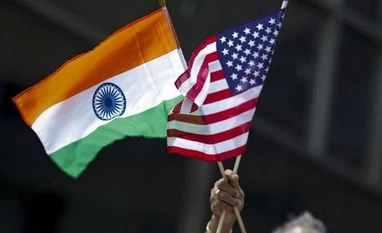Rattled by the proposed changes in its biggest market US, the $150-billion domestic IT industry lobby Nasscom is pinning hopes on a deeper engagement between the "pragmatic" heads of both the countries to help the tide over its current troubles.
"The US' commitment to India is very apparent. I strongly believe that this would require an engagement between Prime Minister Narendra Modi and President Donald Trump and as and when they are able to engage with each other," Nasscom chairman C P Gurnani said recently.
Terming both heads of state as "pragmatic" leaders, Gurnani, who heads Tech Mahindra, which is the fifth largest domestic software exporter rued that there has not been an engagement between Modi and Trump teams.
He said Nasscom top honchos, including himself and president R Chandrashekhar, will be flying to the US later this month to impress their side to senior officials from the Trump administration, during which they will stress on partnering for mutual benefits.
"Chandrasekhar and I will be visiting the US by the end of February to meet a few senior officials of the Trump administration," Gurnani said, adding, "clearly, it is about trade participation, appraising the US about how we create jobs not only here but in other parts of the world."
He also said domestic IT firms create jobs in other markets like China, Malaysia and the Philippines as well.
Elaborating on why partnerships are essential, he cited acquisitions like Wipro buying Appirio, Tech Mahindra's LCC and also Cisco's $3.7-billion takeover of Appdynamics to drive home the point of the need to partnerships.
More From This Section
"Ultimately, my point is, we are collaborating to work together," he said and added, "it is not a one-way business.
The domestic IT industry has been bracing for a rise in protectionist tendencies for some time, but moves like tabling of a bill on H1-B visa rules for on-site engineers, which stipulates a minimum salary of $1,30,000 which is more than double the present rates, among others, have led to deep heartburns in the sector.
Many firms are adopting their own de-risking strategies following potential troubles in the key markets and Nasscom is also representing its case collectively.
He said Nasscom is in regular touch with the department of electronics and IT, hinting that the industry is constantly conveying its apprehensions to the policy makers back home.
When asked about the dip in the percentage share of revenue from the US for his company to around 47 per cent from 50 per cent earlier, he seemed to suggest that it is not a conscious move.
"The US is a great trading and business partner, if they succeed, we succeed," Gurnani said, adding he sees around half of the revenue continue to come from the US despite the ongoing troubles.
)